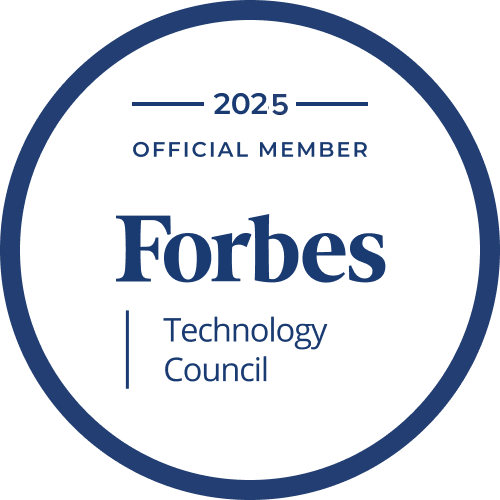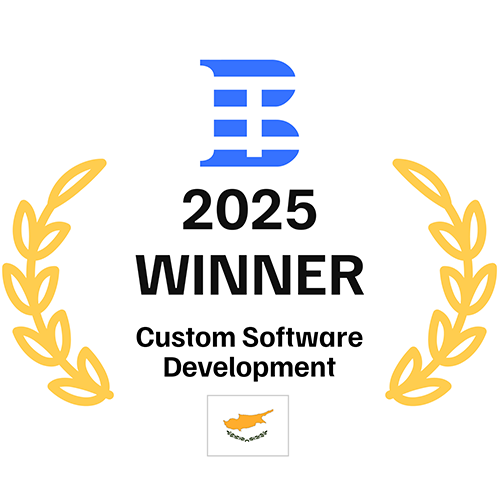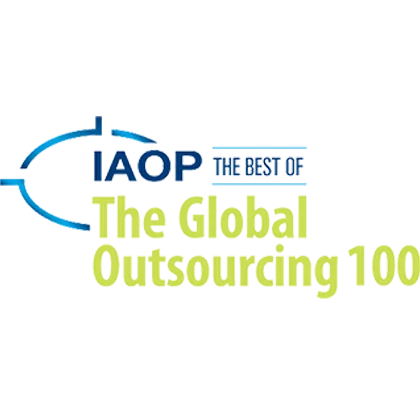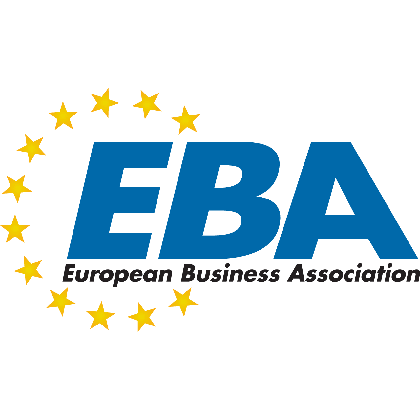Product managers and project managers frequently collaborate, each fulfilling distinct roles. While a product manager defines a product's vision, objectives, and business direction, a project manager oversees the various tasks to realize those objectives. Therefore, if the product manager is a strategic planner, the project manager is more of an executor.
Program-Ace has a dedicated software development team that can help differentiate between products and projects. A product encompasses any service or item an organization creates to fulfill customer needs. Products such as furniture or clothing can be tangible or digital, like an app or a video feature on a website. Conversely, a project consists of tasks undertaken to achieve a specific outcome. The objective of a project may involve creating or maintaining a product, such as constructing a house or implementing a new software update.
What Is a Product Manager?
A product manager oversees a product throughout its lifecycle, from inception to retirement. They establish the product's vision, manage updates, and ensure it meets customer needs. Unlike project management, product management typically lacks a distinct start and end point. In larger organizations, product managers may focus on high-level tasks such as team management. In comparison, smaller organizations may engage in hands-on activities like market research or project management.
What are the Primary Product Manager Skills?

Product managers also oversee a product's profit and loss function. This entails collaborating with sales, marketing, customer success, and support teams to achieve overarching business objectives related to revenue, competitive advantage, and customer satisfaction. Due to its evolving nature, the specific responsibilities of a product manager can vary widely between companies and teams. However, typical tasks include:
- defining critical metrics for product success;
- understanding consumer needs and communicating them to the product team;
- collaborating with cross-functional teams (e.g., engineering, design, marketing) to develop and execute product strategy;
- conducting market analysis and research to identify opportunities for product improvement or growth;
- monitoring product performance;
- testing and evaluating new product features;
- keeping abreast of competitor activities.
Here are five technical skill groups essential for a product manager:
1. Data Analysis
Collecting and analyzing user data, product data, and market research to understand customer needs, product performance, and market dynamics.
2. Market Assessment
Utilizing quantitative market research to expand audience reach and gain insights into market trends.
3. Price Modeling
Using advanced analytics and product management tools to analyze customer data and market trends for informed pricing decisions.
4. User Experience Knowledge
Understanding user experience principles to tailor products to customer needs and enhance overall user satisfaction.
5. Business Acumen
Understanding the company's strategic objectives and aligning product strategies to meet customer needs.
In addition to technical skills, soft skills are crucial in product management. These interpersonal skills enable effective communication, collaboration, and leadership, which are essential for navigating complex situations and successful product development.
Certification Options
While certifications may not be mandatory for all companies, some may prefer that candidates hold professional certifications for product and project management roles. Below are examples of potential certifications for product management:
- Product Manager Certificate
- Certified Product Manager (CPM)
- Certified Product Manager Credential
What is a Project Manager?
A project manager supervises projects from initiation to completion. Projects consist of tasks to achieve a specific objective, varying from large-scale endeavors like constructing buildings to smaller initiatives like implementing new tools for teams. The role of a project manager involves planning these projects by assembling teams, establishing timelines, managing finances, and engaging stakeholders until project closure. Projects typically have well-defined start and end points.
What are the Primary Project Manager Skills?

Their role involves translating the product vision provided by the product manager into a project timeline and organizing the development team's work to achieve critical goals and deadlines. Essentially, they are responsible for efficiently completing a project within the allocated budget, timeframe, and quality standards, focusing on one project at a time.
Specific tasks of project managers may include:
- establishing project scope, timeline, and budget estimates;
- engaging extensively with leadership and stakeholders to ensure alignment;
- developing and implementing processes for managing changes to the project;
- utilizing project management software to track tasks and schedules;
- facilitating effective collaboration among teams and maintaining motivation and adherence to timelines.
Do Project Managers Have to Be Technical?
Becoming a project manager involves mastering the logistical aspects necessary for completing projects efficiently. Prospective project managers should invest in comprehensive training programs to grasp the field's foundational elements and essential technologies.
Obtaining a project management certification is crucial for showcasing one's qualifications. The Project Management Institute (PMI) offers widely recognized certifications, including the Project Management Professional (PMP)® and Certified Associate in Project Management (CAPM)® designations. While CAPM is an entry-level credential, PMP is geared towards seasoned project managers.
Most project manager certification programs require candidates to have a high school diploma, associate degree, or bachelor’s degree and some years of project management experience. Certification candidates must pass a comprehensive exam covering project management principles to earn their certification.
Certification Options
Below are examples of potential certifications for project management:
- Project Management Professional (PMP)
- Certified Associate in Project Management (CAPM)
- Certified ScrumMaster (CSM)
Product Manager vs. Project Manager: Role Comparison
Product managers and project managers collaborate with teams and individuals to accomplish tasks that benefit organizations and their products. They both strive to achieve the organization's objectives. However, while a product manager concentrates on the overall scope of a product, including defining its vision and ensuring it aligns with user needs, a project manager focuses more on logistical aspects such as scheduling, budgeting, and resource management.
A successful product addresses the needs of its target audience or solves a common problem. Products can vary widely, ranging from computer software to household items. On the other hand, a project involves a series of specific steps and tasks. A project should introduce new methods, processes, or systems upon completion.
What does a product manager do?
Product managers consistently emphasize the diverse skill set needed to excel. This position demands a distinctive blend of business expertise, meticulous attention to detail, sales proficiency, marketing aptitude, and a grasp of technical complexities rarely found in other positions. The objective usually includes such activities:
Critical thinking. Prioritization and synthesis of insights from various sources are essential competencies in product management.
Proficiency in the product's domain. It is crucial for understanding the competitive landscape and engaging in insightful discussions with customers and stakeholders.
Creating product vision. Product managers handle various responsibilities tailored to different product life cycle stages, beginning with thorough research through interviews, surveys, and market analysis. After identifying and validating a genuine problem, product managers craft a product vision to propose a solution addressing market needs and gain stakeholder support.
Meeting market expectations. Prototyping, experimentation, and refinement activities are conducted to ensure the product vision meets target market needs at a feasible price point and provides a desired return on investment. Product managers establish and update a product roadmap involving continuous user research, backlog refinement, prioritization, and collaboration with sales and marketing teams to refine messaging, pricing, and packaging.
Additionally, product managers collaborate with account management and customer success teams to develop onboarding and support models that enhance adoption rates, minimize churn, and offer services and innovations for the project.
What Does a Project Manager Do?
This objective typically entails three main activities:
Risk and issue management. Identifying and mitigating potential risks early on to prevent delays in project completion.
Planning and resource scheduling. Planning involves assigning tasks with specified start and end dates, allocating necessary resources, establishing initial time budgets, and creating the project timeline using project management methodologies and tools like the Gantt Chart. Resource scheduling involves daily managing task lists, materials, infrastructure, reports, and personnel to ensure the project team has everything they need.
Scope management. This activity involves balancing time, budget, and quality to align the project scope with the desired outcome. For instance, shortening the project timeline may require additional resources, leading to increased costs. Alternatively, modifications to the scope may be necessary to maintain the agreed-upon quality standards.
Work Challenges Compared: Product Manager vs. Program Manager
So, what sets a program manager apart from a product manager? It's a valid question because they have distinct differences. Both roles involve overseeing and coordinating teams toward a common organizational goal. The variations in responsibilities stem from how different businesses and industries define and structure these roles. Generally, program management tends to have a more strategic focus, while product management leans towards the tactical side.
In many organizations, program managers are responsible for providing strategic guidance and direction to project managers. They identify interdependencies, such as those between product teams and marketing, and then assist product managers in breaking down these cross-functional initiatives. This ensures product managers can define the specific tasks they need to monitor and track effectively.
Product Manager Challenges: A Closer Look
Here’s another helpful way to differentiate between product management and program management. Product management focuses on the success or failure of the product in the market. Product managers are primarily concerned with answering the question, "Why?" Why are we building the product this way? Why are we targeting this user persona? Why are we prioritizing certain features over others? Why are we setting our prices at this level?
On the other hand, program management takes a broader organizational view of strategic initiatives, including product development. Program managers are primarily concerned with answering "How?" and "When?" questions. How can we allocate enough time and resources for pre-launch product training? When should the marketing department start working on collateral creation? How much of the budget should we allocate to these initiatives?
When these roles are executed effectively, they can provide significant synergy and strategic advantage to a company. It's not a matter of choosing between product and program management; ideally, an organization leverages both for every strategic initiative.
Navigating Project Manager Challenges
Now that we’ve distinguished between the disciplines let's compare the individual roles. Although they attend some of the same meetings, their day-to-day activities differ. Program managers focus on ensuring successful execution. They manage how major initiatives unfold, track critical deliverables, and ensure milestones are met.
Their tasks include:
- identifying risks;
- developing program schedules;
- allocating resources;
- establishing program budgets;
- justifying significant expenditures or adjustments.
They ensure that tasks are completed on time and oversee all related variables. This includes providing enough resources for each task, sufficient fuel for operations, and appropriate infrastructure to support the desired outcomes.
In contrast, product managers are focused on strategy. While considering execution-related realities, their primary concern is creating a feasible strategy. Product managers identify market demands and opportunities. They work with stakeholders to determine which product features resonate with customers, gather and analyze customer feedback, and develop customer personas.
However, they are not concerned with the operational details of production or distribution. Their main priority is ensuring the product is available when needed, leaving the logistics to program managers.
Collaborative Strategies: Difference Between Project Manager and Product Manager
Program, product, and project managers are often mistaken for one another, but each role has distinct responsibilities and objectives. How do they differ? Product managers oversee ongoing products to address user needs and enhance task efficiency. Program managers manage continuing initiatives, including multiple projects and tracks, often with a defined endpoint.
Project managers handle discrete projects with specific start and end dates. These differences in their respective domains lead to variations in job descriptions. While there is some overlap between program managers and project managers, as both oversee critical organizational initiatives, their focuses and scopes are distinct.
Product Owner vs. Product Manager vs. Project Manager
The difference between a product manager and a project manager can be vague. It is even more complicated to compare them with a product owner. Program management encompasses a broader scope, typically focusing on overarching initiatives rather than the detailed aspects of individual project management. Project managers handle resource allocations and scheduling, often reporting to program managers who oversee multiple projects.
On the other hand, product management involves strategic decision-making, prioritizing organizational objectives, and synthesizing stakeholder input to define and justify product development. Product managers prioritize features based on strategic goals and user needs without getting bogged down in project details like resource allocation or scheduling.
| Role | Responsibilities | Focus |
| Product Owner |
|
|
| Product Manager |
|
|
| Project Manager |
|
|
How to Choose the Right Role For Your Team?
For those deeply entrenched in any of these professions, it can be incredibly frustrating that others often confuse them. Despite their distinct differences, the titles are frequently used interchangeably. Several factors contribute to this confusion. Firstly, the similarity in their names—each starting with "pro" and often abbreviated as "PM" in casual conversation—makes it easy to mix them up. Additionally, unlike most other roles within an organization, none of the three "PM" positions have tangible deliverables in the traditional sense.
They aren't closing deals, coding software, writing content, or creating marketing materials. Instead, they primarily focus on internal activities like creating presentations, schedules, and roadmaps to align stakeholders. Furthermore, all three types of PMs play oversight roles, facilitating communication, scheduling and leading meetings, and ensuring that tasks are completed as needed.
Extend Your Team with Program-Ace Services
Product and project managers coordinate initiatives, foster collaboration, and drive organizational progress. The crucial step is identifying your primary goals and aligning the appropriate manager with those objectives. Streamline your product road mapping and launch management by hiring a dedicated software development team by Program-Ace.
At Program-Ace, clients opt for our reliability, unwavering commitment to excellence, and demonstrated ability to turn ideas into tangible results. We encourage those eager to find their dedicated software team to contact us. Together, we can uncover the limitless potential of innovation.
























